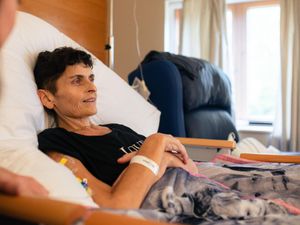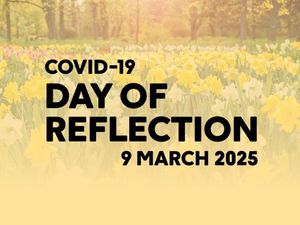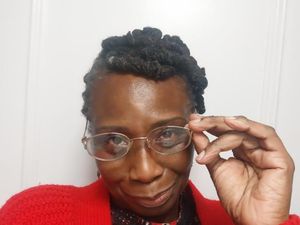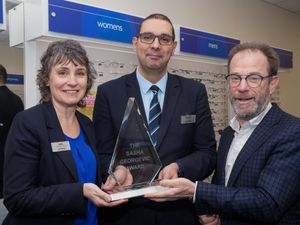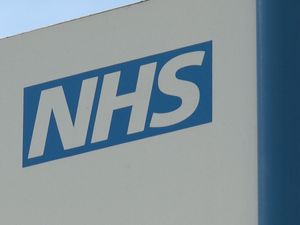Black Country doctors practice says it can't fill vacancies amid 'alarming' shortage
An “alarming shortage” of fully trained GPs practising in the Black Country has been confirmed by the latest NHS statistics.
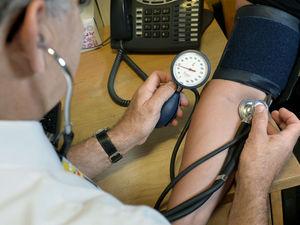
As patients complain about the difficulty of getting GP appointments NHS figures show there are nearly 100 fewer fully trained GP practicing than a year before.
The British Medical Association warned “the haemorrhage of GPs from practices in the Black Country and across England is alarming”.
The BMA claimed there has been the biggest year-on-year fall in over three years in fully qualified GPs, despite the Government’s 2019 manifesto pledge to recruit 6,000 more GPs by 2025.
Practice manager at Dudley Wood Surgery Arun Venugopal said: “The BMA warnings are totally right.
“We have been trying to recruit a GP to our surgery for nine months now and it is virtually impossible.
“The problem is a long term one. Young medical students do not want to be GPs anymore, they want more glamorous positions like surgeons or working in A&E.
“Being a GP is not glamorous, requires hard work but is vital for the NHS.
“The Government should require new medical students to do a stint as a GP whether they want to be one or not.”
Filling the void created by the shortage of GPs in the NHS is costing the taxpayer millions of pounds paying for locums to cover shifts at surgeries like Dudley Wood.
Mr Venugopal added: “At Dudley Wood Surgery we are coping with one full time GP, who is a partner and now working every day, when we normally have two.
“Not being able to recruit a full time GP means we are having to hire locums, which is costing us a lot of money.
“We have asked the locums if they would want a full time GP position but most are semi-retired already.”
As well as fewer medical students wanting to be GPs the NHS is losing GPs to retirement.
Mr Venugopal said: “Traditionally a GP would have continued working as long as they could but now modern GPs are taking retirement earlier, some are frazzled or burnt out or others do not want to work as a full time GP as they get older themselves.”
Mr Venugopal predicted the shortage of GPs will continue without positive action.
He said: “The Government needs to look into bringing GPs into the NHS from abroad, there might be issues with language and patients might not like being treated by doctors from another ethnicity or culture but it is one of the only options which will make a difference in the short term.”
NHS Digital figures show there were 767 full-time equivalent GPs in the former NHS Black Country and West Birmingham CCG area in November.
But of these, 203 were in training, meaning just 564 were fully qualified – down from 651 a year earlier.
Another medic to speak out is Dr Mary McCarthy who retired at the end of last year, but is still a member of the British Medical Association (BMA) and the European Union of Medical Practitioners.
She said pay for GPs needed to be addressed in an effort to bring more people into the profession, in turn reducing hours and relieving the stress on those currently trying to cope with huge levels of demand.
She warned that without improvements doctors would walk away, and said that despite it being “the best job in the world”, if she were starting now she would not want to work in the UK.
Nationally, there were 27,400 fully trained GPs in November – down from 27,900 in November 2021 and a decrease of 1.7 per cent, the largest annual fall in more than three years.
Dr McCarthy pointed to a survey of European GPs that had shown that 24 per cent had responded by saying that their workload was “reasonable”.
Birmingham GP and BMA GP committee member, Dr Fay Wilson said: “We know that GPs in the Black Country and Birmingham are under huge pressure and this is getting worse with the steady fall of fully trained GPs.
“Despite promises to recruit 5,000 – and then 6,000 – more GPs, the Government has since 2015 allowed the loss of the equivalent of more than 1,900 full-time fully-qualified GPs in England. This especially affects areas where needs are high.
“The sharp drop in the number of GPs in the last year means that in many areas, there are far fewer GPs for the number of patients. GP workload gets much higher as they are trying to do more with less.
“If we are to make sure that patients can have timely access to care and GPs are not completely overwhelmed, the Government needs to show it is taking the GP workforce crisis seriously.
“This includes taking steps to support practices and giving them the help they need to safely continue caring for patients. This will help keep more GPs in the profession in the area as long as possible.”

